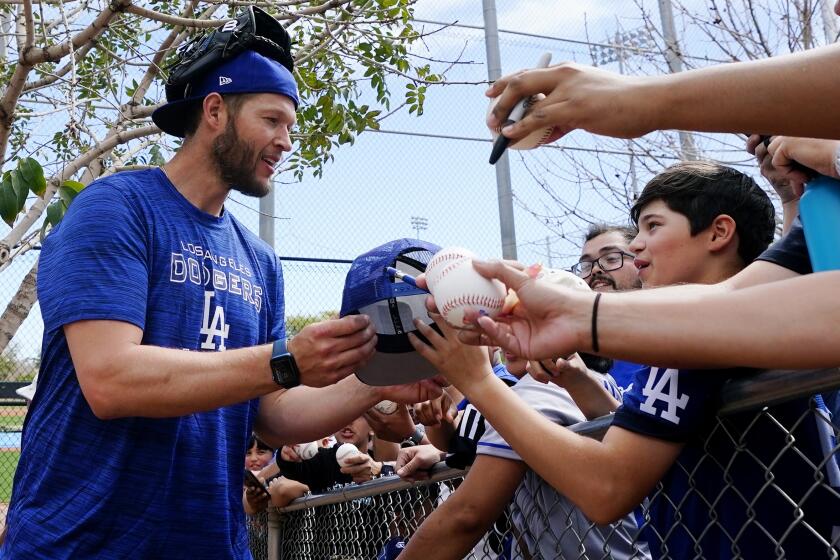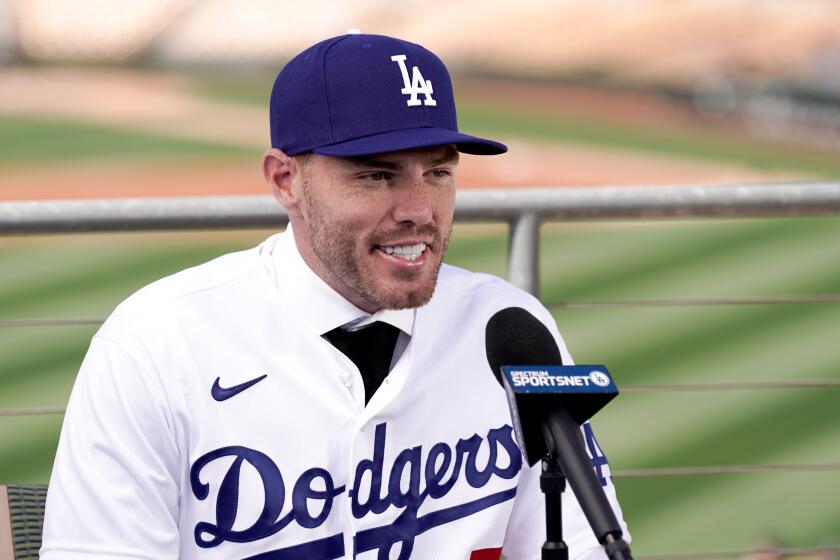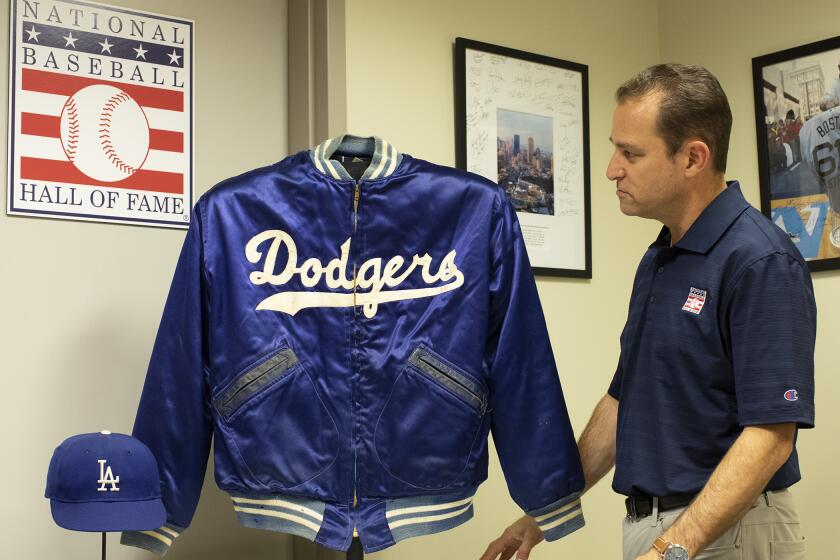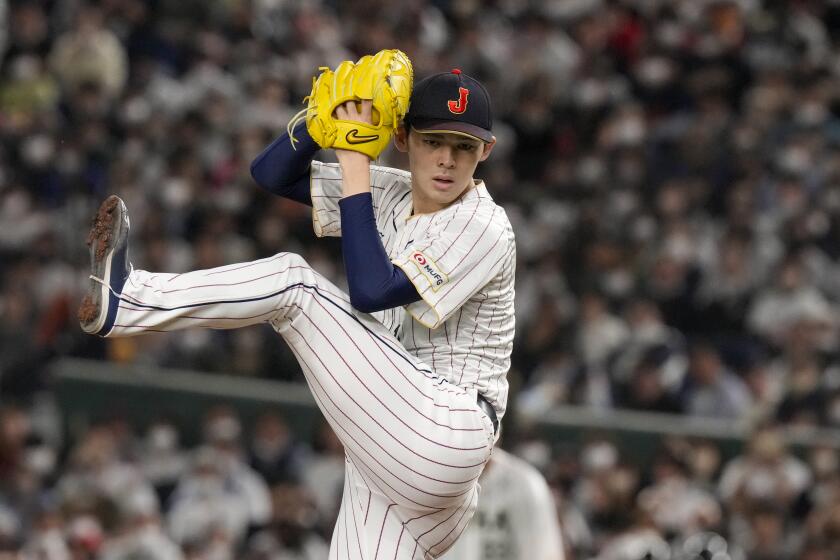Commentary: Don’t expect Theo Epstein 2.0, but how long does Andrew Friedman want to run Dodgers?
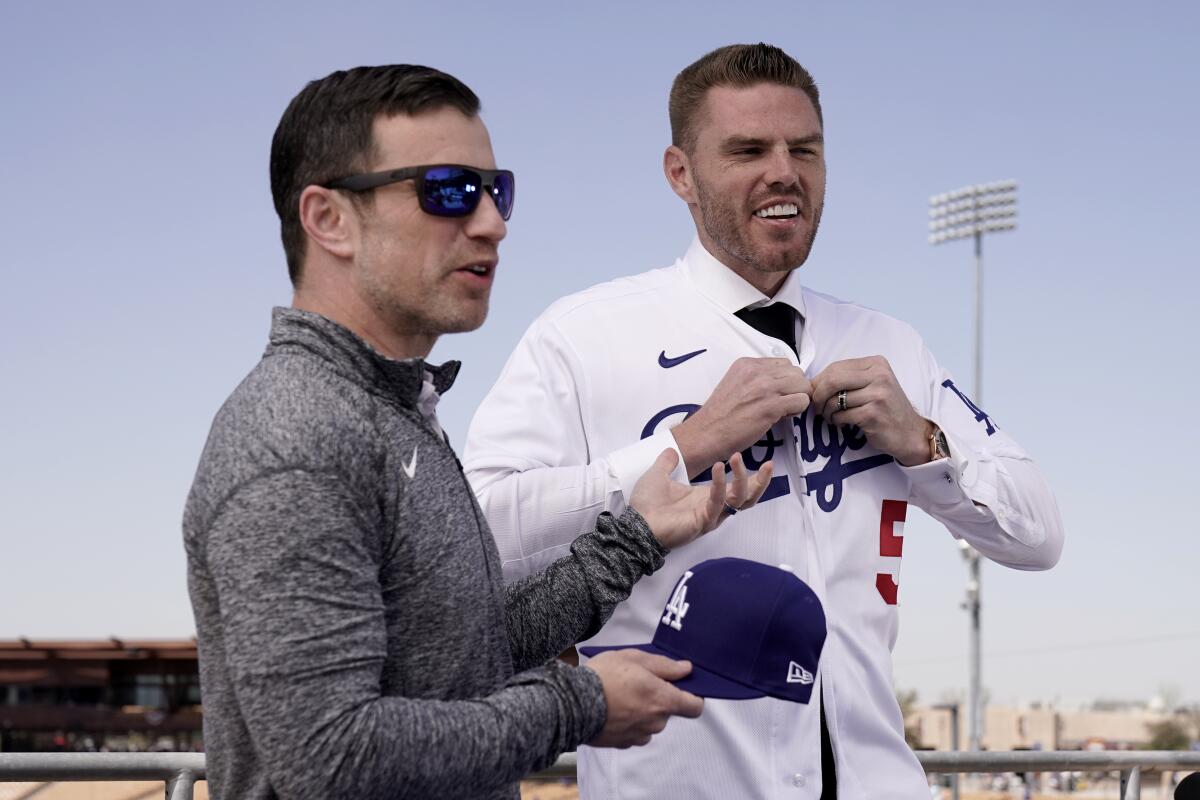
- Share via
PHOENIX — You don’t walk away from a dream job without explaining why. If you’re Theo Epstein, and the dream job involves leading the Boston Red Sox to their first World Series championship in way too many decades, you write a column in the Boston Globe explaining why.
Epstein invoked the name of a sporting legend — not a Red Sox legend, or even a baseball legend, but Hall of Fame football coach Bill Walsh. The theory Walsh espoused was that a coach or executive should move on after 10 years of running a team.
“The executive gets rebirth and the energy that comes with a new challenge; the organization gets a fresh perspective, and the chance for true change that comes with new leadership,” Epstein wrote. “This idea resonated with me.”
Epstein walked away from the Red Sox after nine years. He took over the Chicago Cubs, again walking away after nine years.
Andrew Friedman walked away from the Tampa Bay Rays after nine years. He took over the Dodgers, leading them to their first World Series championship in way too many decades.
Friedman is starting his eighth season with the Dodgers. He’s got three kids. Truth be told, he loved the lockout, and so did they.
Clayton Kershaw’s mindset might have led to visits to the injured list and millions in lost wages, but it’s also why he’s the most admired Dodger.
“The lockout was awesome,” Friedman said. “It was the first time over winter break that I wasn’t tethered to my phone. I try to balance it, but I’m sure they feel it pretty intensely. It was great.”
He steered the Dodgers out of the post-Kirk Gibson wilderness. The Dodgers make the playoffs every year. Their front office is raided every year. Of the four teams that made the league championship series last year, one was led by Friedman and the other three by executives who trained under Friedman.
No one would blame him if he walked away from the Dodgers. After all, they walked away from him first.
No, really. He went to work on Wall Street after he graduated from Tulane, but not without peppering every major league team with letters and resumes, trying to break into baseball in some sort of entry-level job, somewhere. His rate of rejection?
“Thirty for 30,” Friedman said.
Who you know can be more important than what you know. On Wall Street, a friend of a friend turned out to be Matt Silverman, who worked with Stuart Sternberg. When Sternberg bought the Rays, he brought in Silverman and Friedman. If not for that, Friedman might still be on Wall Street, and the Dodgers might still be pining for 1988.
Friedman is 45, young enough for a second act as long and productive as his first. When Epstein walked away from the Cubs, he said his days of running a team were done.
Friedman said he has spoken with Epstein about the Walsh theory and why Epstein embraced it.
“For me,” Friedman said, “it’s less about any rigid timeline, and more about the stimulation of what you do, the enjoyment you derive from the people you work with.”
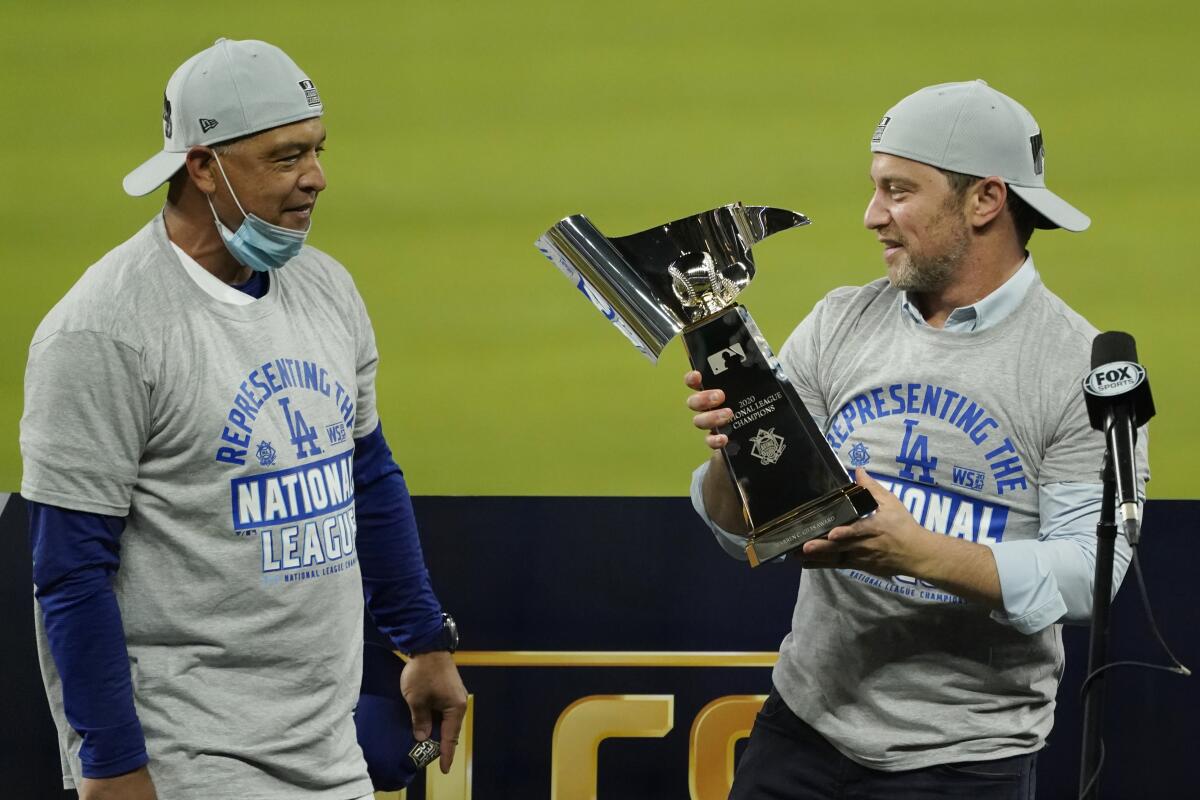
For Epstein, nine years in one place was long enough. Friedman does not sense an internal clock ticking. He felt closer to leaving Los Angeles seven years ago than he does now.
“It’s at an apex right now, and that has taken time to build,” he said. “A year in, after coming to the Dodgers, I probably would have hit the do-over button. It was for no other reason than the trust and the relationships I had created in Tampa Bay weren’t here at that point — nor should they have been. That takes time. I knew that was the case, but I didn’t know how it would feel. It made having success less enjoyable. I just didn’t fully appreciate that.
“Now that we’ve created that, it would be hard for me to go somewhere else, until forced out, because of that ecosystem and culture that has been created. I’ll be disappointed if it’s not better six months from now, or a year from now. There’s always things to strive for, to get better. But those relationships make the success we’re enjoying that much more enjoyable.”
He is more likely to get a bobblehead doll than to get forced out. But could he envision running the Dodgers for another decade?
“It’s hard for me to imagine consciously and deliberately walking away from having some involvement with this team,” he said. “What exactly that looks like, I don’t know, but it’s hard to imagine where it’s a conscious thought of mine that, ‘Hey, I’m out.’ ”
That does not mean the lessons of the lockout and the pandemic, and the unexpected time spent with family, are lost on him.
“The question is, ‘Am I also being a good enough husband, dad and friend?’ ” Friedman said. “I’m probably harder on myself now than I was three years ago, because I have more perspective, but it doesn’t mean I can’t do everything I can to be as good at my job as I can and also be as good at those things as I can.
“I think my passion for what I’m doing and the satisfaction I get from it is higher than it was seven years ago. So long as it continues to maintain or climb, and I feel like I am balancing it in a way that I won’t look back later in life with major regrets, then I will continue.”
I had to ask about motivation. He came to L.A. to win a World Series. He did. What drives him?
An inside look at how the Dodgers signed All-Star first baseman Freddie Freeman, including an impromptu call from Mookie Betts’ wedding.
“It’s to win another,” he said. “I want nothing more than to look back on this period of time as the golden era of Dodgers baseball.
“That’s a high bar. There have been some really good eras of Dodger baseball. That’s what I want.”
Frankly, this already is the golden era. In the last six years, the Dodgers have appeared in the league championship series five times, in the World Series three times. But, if it takes a parade for Friedman to believe it, we’re good with that.
More to Read
Are you a true-blue fan?
Get our Dodgers Dugout newsletter for insights, news and much more.
You may occasionally receive promotional content from the Los Angeles Times.

